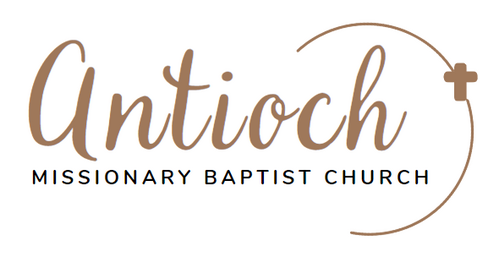Sermon Takeaway 05/18/2025

The Flood, Faith, and Finding Grace: Lessons from Noah's Story

Walking with God: Embracing Righteousness in a World of Chaos
In a world increasingly marked by violence, corruption, and moral decay, the ancient story of Noah and the flood resonates with surprising relevance. This tale of divine judgment and redemption offers profound insights into human nature, God's character, and the path to righteousness.
The narrative begins with a stark portrayal of a world gone astray. Humanity had turned from serving God to indulging their own desires, guided by what their eyes saw and hearts craved, regardless of divine instruction. The Bible paints a grim picture: "every intent of the thoughts of their heart was only evil continually." This description refers not to physical organs, but to the inner person – that core part of our being that defines who we truly are when all pretenses are stripped away.
In this sea of wickedness, one man stood out. Noah "found grace in the eyes of God" and "walked with God." These simple phrases carry immense weight. To walk with God implies a life of close communion, obedience, and alignment with divine will. It's a challenge to all of us: can others look at our lives and say we walk with God?
The text emphasizes that Noah was made righteous not by his actions alone, but by his faith. Hebrews 11:7 elaborates: "By faith Noah, being divinely warned of things not yet seen, moved with godly fear, prepared an ark for the saving of his household, by which he condemned the world and became heir of the righteousness which is according to faith."
This highlights a crucial distinction between mere religious observance and true, transformative faith. Noah didn't just believe intellectually; his faith compelled him to act, even when God's warnings seemed implausible. He had never seen rain, let alone a world-ending flood, yet he obeyed without question.
This obedience flowed from Noah's relationship with God, not from a desire to earn salvation. It's a powerful reminder that while salvation is a free gift received by faith, genuine faith inevitably produces change in the believer's life. From the moment of salvation, a process of transformation begins. We become new creatures in Christ, gradually aligning our actions with God's will.
The narrative begins with a stark portrayal of a world gone astray. Humanity had turned from serving God to indulging their own desires, guided by what their eyes saw and hearts craved, regardless of divine instruction. The Bible paints a grim picture: "every intent of the thoughts of their heart was only evil continually." This description refers not to physical organs, but to the inner person – that core part of our being that defines who we truly are when all pretenses are stripped away.
In this sea of wickedness, one man stood out. Noah "found grace in the eyes of God" and "walked with God." These simple phrases carry immense weight. To walk with God implies a life of close communion, obedience, and alignment with divine will. It's a challenge to all of us: can others look at our lives and say we walk with God?
The text emphasizes that Noah was made righteous not by his actions alone, but by his faith. Hebrews 11:7 elaborates: "By faith Noah, being divinely warned of things not yet seen, moved with godly fear, prepared an ark for the saving of his household, by which he condemned the world and became heir of the righteousness which is according to faith."
This highlights a crucial distinction between mere religious observance and true, transformative faith. Noah didn't just believe intellectually; his faith compelled him to act, even when God's warnings seemed implausible. He had never seen rain, let alone a world-ending flood, yet he obeyed without question.
This obedience flowed from Noah's relationship with God, not from a desire to earn salvation. It's a powerful reminder that while salvation is a free gift received by faith, genuine faith inevitably produces change in the believer's life. From the moment of salvation, a process of transformation begins. We become new creatures in Christ, gradually aligning our actions with God's will.
The story of Noah serves as a sobering warning about the reality of divine judgment. The flood was catastrophic, wiping out all life on land save for those on the ark. While this may seem harsh to modern sensibilities, it underscores the gravity of sin and the holiness of God. Yet even in judgment, we see God's mercy. He gave humanity 120 years to repent, with Noah serving as a "preacher of righteousness" during that time.
Tragically, the people ignored these warnings, continuing in their sinful ways until it was too late. Jesus himself drew parallels between the days of Noah and the end times, cautioning that many will be caught unprepared when judgment comes.
The ark itself carries rich symbolism. God provided detailed instructions for its construction, including the crucial detail of a single door. This foreshadows Christ as the one way of salvation. Just as there was only one entrance to safety on the ark, Jesus declared, "I am the door. If anyone enters by Me, he will be saved" (John 10:9).
The story of Noah challenges us to examine our own lives and society. Do we see echoes of that ancient world in our own time? The text mentions violence and sexual depravity as hallmarks of that corrupt generation – issues that continue to plague our world today. It's a call to vigilance and holiness, even when surrounded by a culture that rejects God's standards.
Yet the message is not one of despair, but of hope. God is still in the business of redemption. He desires that none should perish but that all should come to repentance. The flood story reminds us that while God's judgment is real, His mercy is vast. He always provides a way of escape for those who turn to Him in faith.
This narrative also speaks to the fleeting nature of life and the eternal consequences of our choices. Our time on earth is brief – 70 or 80 years if we're fortunate. But the decisions we make here echo into eternity. Will we, like the majority in Noah's day, live for momentary pleasures and ignore God's warnings? Or will we, like Noah, walk with God and find grace in His eyes?
The story concludes with a powerful statement: "Thus Noah did; according to all that God commanded him, so he did." It's a testament to Noah's faithfulness and a challenge to all believers. Can it be said of us that we do all that God commands? Not out of a desire to earn salvation, but as a natural outflow of our faith and love for Him?
In a world that often feels like it's spiraling into chaos, the account of Noah offers both warning and comfort. It reminds us that God sees the wickedness around us and that judgment will come. But it also assures us that God provides a way of salvation for those who trust in Him.
Tragically, the people ignored these warnings, continuing in their sinful ways until it was too late. Jesus himself drew parallels between the days of Noah and the end times, cautioning that many will be caught unprepared when judgment comes.
The ark itself carries rich symbolism. God provided detailed instructions for its construction, including the crucial detail of a single door. This foreshadows Christ as the one way of salvation. Just as there was only one entrance to safety on the ark, Jesus declared, "I am the door. If anyone enters by Me, he will be saved" (John 10:9).
The story of Noah challenges us to examine our own lives and society. Do we see echoes of that ancient world in our own time? The text mentions violence and sexual depravity as hallmarks of that corrupt generation – issues that continue to plague our world today. It's a call to vigilance and holiness, even when surrounded by a culture that rejects God's standards.
Yet the message is not one of despair, but of hope. God is still in the business of redemption. He desires that none should perish but that all should come to repentance. The flood story reminds us that while God's judgment is real, His mercy is vast. He always provides a way of escape for those who turn to Him in faith.
This narrative also speaks to the fleeting nature of life and the eternal consequences of our choices. Our time on earth is brief – 70 or 80 years if we're fortunate. But the decisions we make here echo into eternity. Will we, like the majority in Noah's day, live for momentary pleasures and ignore God's warnings? Or will we, like Noah, walk with God and find grace in His eyes?
The story concludes with a powerful statement: "Thus Noah did; according to all that God commanded him, so he did." It's a testament to Noah's faithfulness and a challenge to all believers. Can it be said of us that we do all that God commands? Not out of a desire to earn salvation, but as a natural outflow of our faith and love for Him?
In a world that often feels like it's spiraling into chaos, the account of Noah offers both warning and comfort. It reminds us that God sees the wickedness around us and that judgment will come. But it also assures us that God provides a way of salvation for those who trust in Him.
As we reflect on this ancient story, let's examine our own hearts. Are we walking closely with God, or drifting towards the values of a corrupt world? Are we building our lives on the solid foundation of faith, or on the shifting sands of cultural trends? And most importantly, have we entered through the one door of salvation that God has provided in Jesus Christ?
The flood waters rose suddenly for Noah's generation, but the door of the ark had been open for decades. Today, the door of salvation stands open still. Will we heed the warnings, enter by faith, and find grace in the eyes of God? The choice, as it was in Noah's day, is ours to make.
The flood waters rose suddenly for Noah's generation, but the door of the ark had been open for decades. Today, the door of salvation stands open still. Will we heed the warnings, enter by faith, and find grace in the eyes of God? The choice, as it was in Noah's day, is ours to make.
Watch the full sermon here:
Recent Takeaways
Archive
2026
2025
March
September
October
November

No Comments